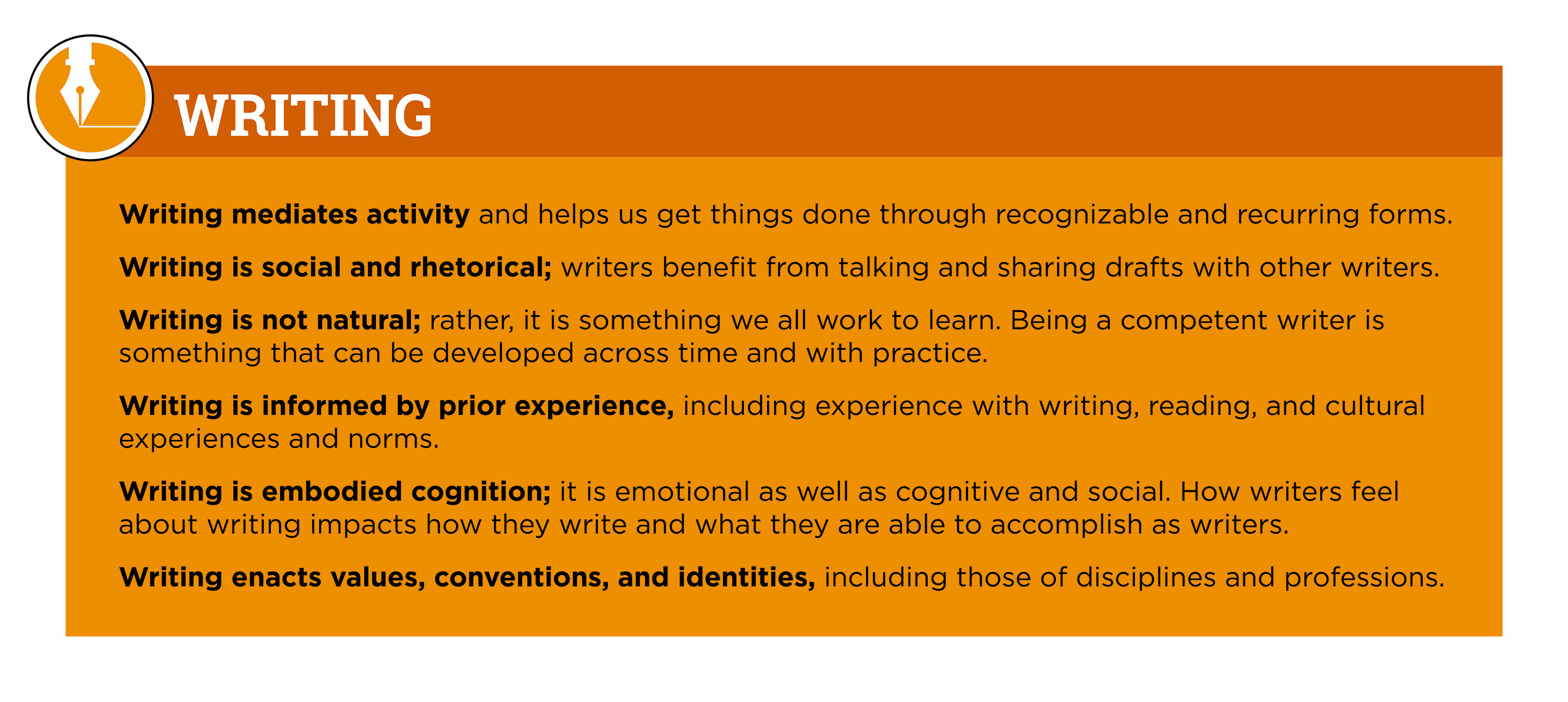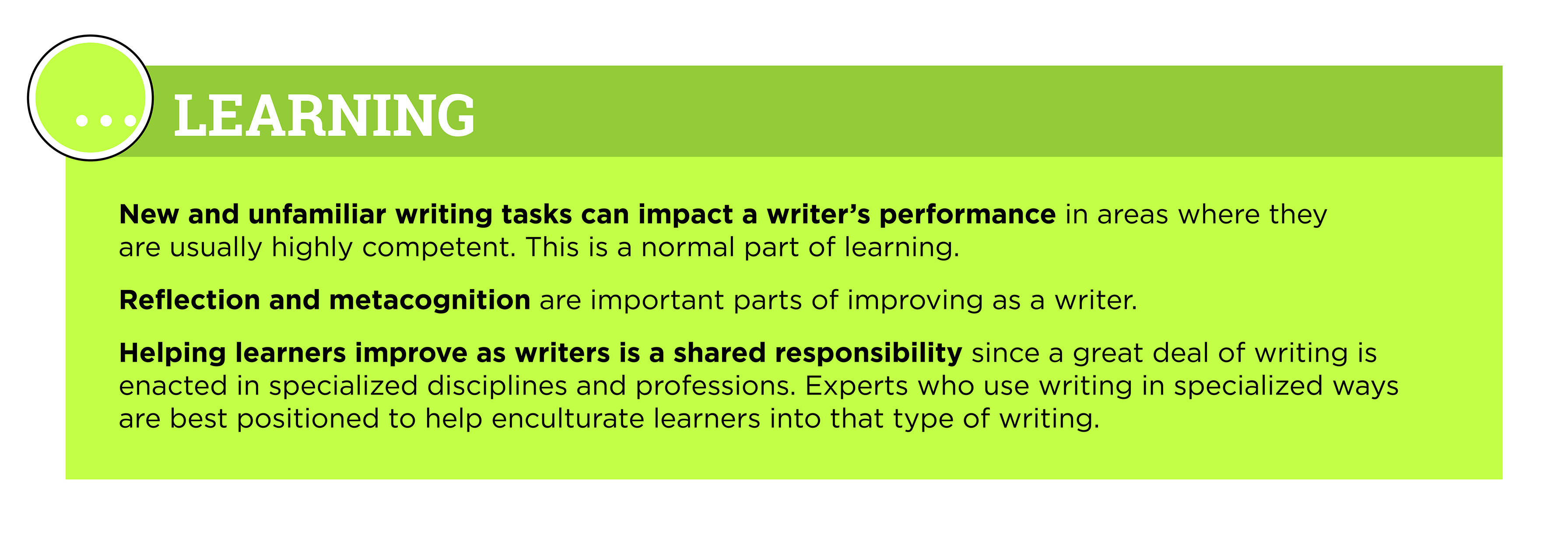Mission and Principles
Our Mission
Our mission is to ensure that Miami supports its students in developing as effective writers in college, fully preparing graduates to excel as clear, concise, and persuasive writers in their careers, communities, and personal lives.
Our Principles
We follow these research-supported principles of writing and rhetoric:




